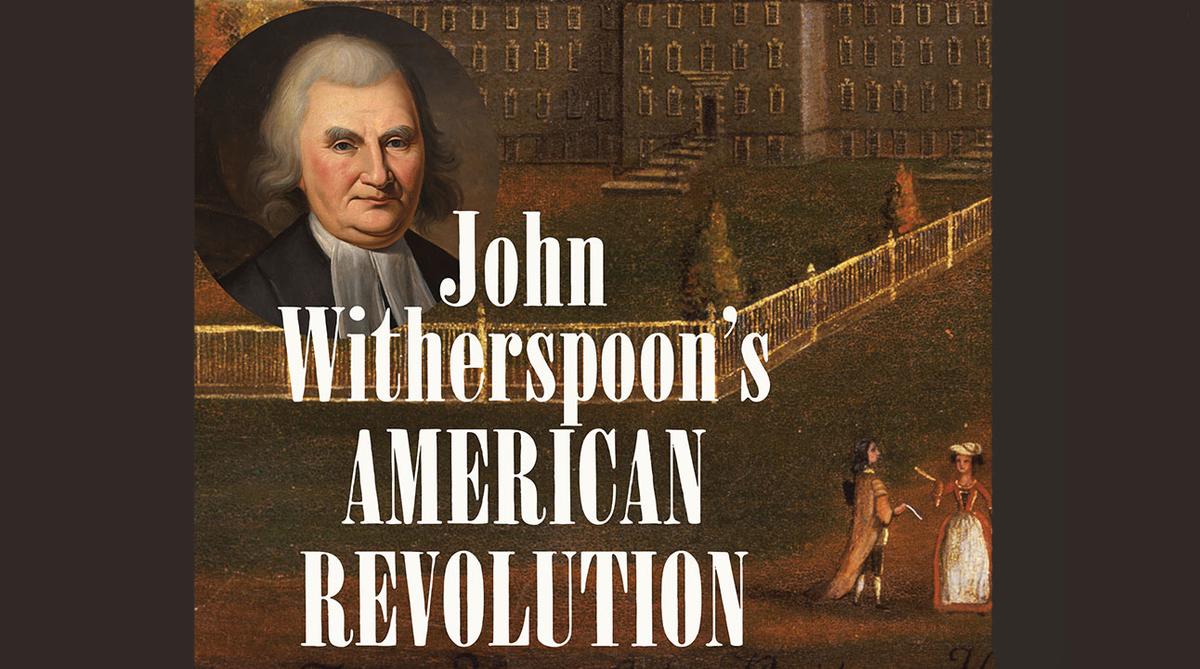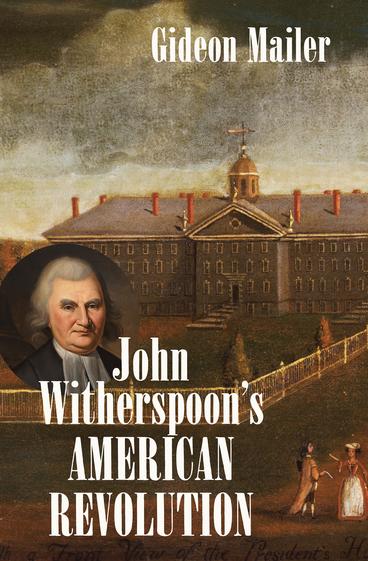A new book, John Witherspoon's American Revolution, by Gideon Mailer, associate professor in the Department of History at UMD, has been published by the University of North Carolina Press, in association with the Omohundro Institute of Early American History and Culture in Williamsburg, Va.
Mailer was initially intrigued by the thought that despite colonial America’s supposed pious Puritan roots, only one clergyman eventually signed the American Declaration of Independence - Witherspoon.
“He seemed to provide a rich case study to explore the wider intellectual, religious, and constitutional framework of the American Revolution. After all, he fought on behalf of Britain against Jacobite rebels in 1745, yet only a few decades later supported the American revolutionary cause against that same British state,” Mailer stated.
Mailer points out that this is the first history of the American Revolution to integrate the political and religious influences of the 1707 Act of Union between Scotland and England, on subsequent American history.
“It is the first work to trace the tension between the Scottish Enlightenment and Protestant evangelicalism as it influenced the developing philosophies of American independence and American constitutionalism. It is quite controversial in offering an account of the origins of American exceptionalism from the colonial period through the revolutionary era, demonstrating its debt to religious ideas of universal sin that developed during the formation of the British union,” Mailer said.
“Much of what we have come to call ‘The American Enlightenment’ - the consolidation of rational thought and a growing trust in individual moral perception - has been linked to Witherspoon's influence after his arrival in America. Having left Scotland, he is said to have brought aspects of the Scottish Enlightenment to America. Yet I was intrigued by the associated paradox: how could an evangelical theologian, focused on sin and damnation, have inspired Enlightenment ideals in America?”
Mailer would like readers to question “whether the United States could have been founded according to Enlightenment principles - notions of innate sympathy, rationality, and ethical discernment - even while those principles accompanied the onset of rebellion and the chaotic disintegration of an empire.
“Witherspoon continued to doubt the Enlightenment notion of moral benevolence through the Revolution, even as an ardent Patriot. He incorporated the resulting philosophical tension in his teaching, piety, and political theory. That America's founding incorporated potentially contradictory philosophical ideas is important to note – and perhaps explains a lot about subsequent history!” Mailed noted.
Reviews:
“Mailer’s tour de force of research has produced a cornucopia of insights into a key but underappreciated leader of the eighteenth-century Atlantic world. With careful probing of Witherspoon’s Scottish career and painstaking examination of his central role in the colonial break from Britain, Mailer corrects what other historians, including myself, have written about this influential minister, educator, and public servant. A special contribution is Mailer’s demonstration that Witherspoon, although with some ambiguity, sustained foundational evangelical convictions in his career on both sides of the Atlantic.” —Mark A. Noll, University of Notre Dame
"A valuable and ambitious work on the life, thought, and career of the minister, educator, and Revolutionary political leader John Witherspoon. Mailer revises portrayals of Witherspoon's principal significance as that of purveyor of Enlightenment philosophy rather than religious leader and uncovers a specifically Scots Presbyterian dimension to the political and moral culture of Revolutionary America." —Ned Landsman, Stony Brook University
“In this fresh biography of John Witherspoon, Mailer explores the rich philosophical origins of the Revolutionary War, American education, and the United States’s distinctive civil religion. Mailer skillfully integrates intellectual and religious narratives to demonstrate how evangelicalism, presbyterianism, and Scottish history formed the new American Republic. This work transforms our understanding of the only minister to sign the Declaration of Independence and his most influential student, James Madison.”—Kate Carté Engel, Southern Methodist University
Visit the Department of History website

